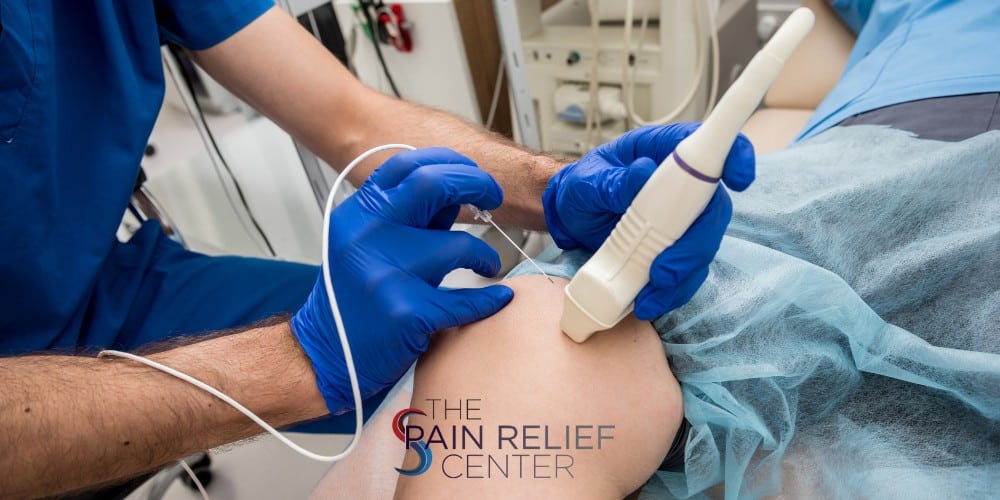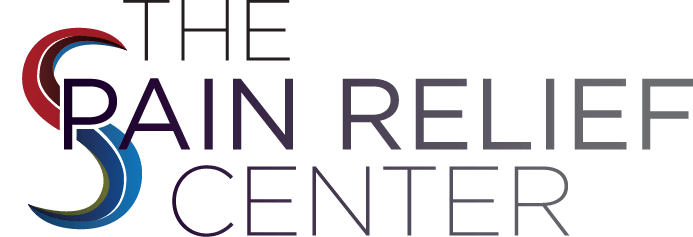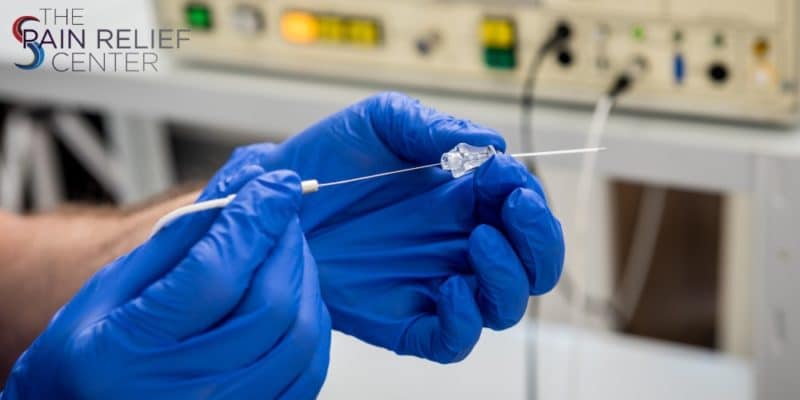RADIOFREQUENCY ABLATION
Treatment for Trigeminal Neuralgia, Joint Pain, and Nerve Pain
MIGRAINE TREATMENT OPTIONS

When you’re dealing with chronic pain that disrupts your everyday life, you probably won’t want to consider surgery as your first treatment option. Surgery is generally reserved as a last resort when more conservative treatments have failed. One popular option that has gained traction in recent years is called radiofrequency ablation, or rhizotomy. This minimally invasive procedure can help those with recurrent pain in their facet joints.
At The Pain Relief Center, we offer a wide variety of non-surgical treatment options for those in need of pain relief. Conservative chronic pain interventions are essential, as they give patients the opportunity to achieve lasting relief without the difficult recovery of surgery. If pain medication and other methods haven’t helped your pain, consider radiofrequency ablation. To schedule an appointment with a Dallas pain management specialist, please call our office at 214-709-1904 today.
What Is Radiofrequency Ablation?
Radiofrequency ablation, also called RFA or rhizotomy, is a minimally invasive treatment that can be used for pain relief and minimizing the size of certain growths in the body. The process essentially uses heat in order to destroy very specific areas of tissue. When used for pain management, radio waves are transmitted into the nerves through a needle. The radio waves heat up the nerve tissue and prevent it from sending pain signals back to the brain.
It can also be used to shrink tumors, nodules, and other painful tissues in the body. The radiofrequency waves heat this tissue and essentially burn it away on a very small scale.
Who Is a Good Candidate for RF Ablation?
If you have chronic joint pain that has not responded to other treatments, you may be a good candidate for RFA. Radiofrequency ablation can be an effective treatment for a number of conditions, including the following.
- Peripheral nerve pain
- Chronic low back pain
- Lumbar facet joint pain
- Complex regional pain syndrome
- Facial pain caused by trigeminal neuralgia
- Spinal cord pain
- Stomach pain from pancreatic cancer
- Ovarian cancer pain
- Pain in the sacroiliac joints
How to Prepare for Radiofrequency Ablation
Before any medical procedure, it is imperative that you speak with your doctor about how to prepare. At The Pain Relief Center, we will always inform you of what a procedure entails before you undergo it. Before you undergo radiofrequency ablation, we recommend making the following preparations.
- If possible, arrange to have a family member or friend drive you home after the procedure.
- Refrain from eating or drinking anything for at least 6 hours prior to the procedure. Your doctor will inform you of which medications you can and cannot take before the procedure.
- Do not take any medications that could cause bleeding or slow the blood clotting process for around 12 days before your procedure.
- Do not wear any jewelry during the procedure.
- Take a shower on the day of your procedure and use antibacterial soap to reduce your risk of infections.
- Wear comfortable clothing that is easy to put on and take off.
What Happens During Radiofrequency Ablation?
Before the procedure begins, your doctor will start an IV line. The IV line will be used to administer medication to the patient that will keep them comfortable and calm. The use of a local anesthetic may be an option, but it is usually not necessary. After this, your doctor will carefully place the electrode that will be used for the procedure. An electrode is a conductor of electricity.
In order to place the electrode, the doctor will insert two needles next to one of the medial branch nerves to be treated. Then, an electrode will be placed into the needle. Your doctor will then send small radiofrequency waves into the medial branch nerve. These electrodes remain charged for around a minute to a minute and a half. During this time, the radiofrequency ablation generates heat. This heat destroys the nerve fibers so that they cannot send pain signals to the brain. During this time, you may feel a tingling sensation.
Once the procedure concludes, you will stay in a recovery room so that we can monitor you. This is done to ensure that you do not have any adverse reactions to the procedure. Once we determine that your condition is stable enough, you may return home. Remember that you should not drive during your 24-hour rest period.
What Happens After Radiofrequency Ablation?
As we mentioned previously, you will need to rest for at least 24 hours after the procedure. After a day or two, you should be able to return to your normal activities. This includes showering or bathing. Many patients still feel soreness, pain, or muscle spasms at the site of the treatment for a few days after the procedure.
Speak with your doctor about what types of pain medications you can use during your recovery period, and in what quantities. The amount of lingering pain you may have depends on how many treatments you received, and in which areas of the body. To help with swelling and pain, you can also use an ice pack on the injection site a few times a day for up to 20 minutes each.
In some cases, we recommend that patients undergo physical therapy to aid in their recovery. We will also schedule follow-up appointments to assess the success of your procedure.
How Long Does Recovery Take After Radio Frequency Ablation?
Depending on the treatment areas, as well as the number of treatments, patients can see vastly different results and recoveries. While some patients will have immediate relief even from severe pain, others will need up to three weeks to see the full results of their treatment. The length of time that you have relief from pain also varies. Some have relief from their RFA procedure for as long as 12 months. Others may only feel relief for up to six months.
In some cases, the targeted nerve could regrow. This could take anywhere from six months to twelve months to occur. If your neck or spinal cord pain returns for this reason, you can undergo another RFA procedure. We recommend speaking with your provider to learn more about the potential success rate of your procedure before you undergo it.
Risks and Complications of Radiofrequency Ablation
As with other procedures for pain, such as multimodal perioperative pain management, nerve ablation has potential risks and complications. Although complications are rare, they are not impossible. Below, we outline the potential side effects and complications associated with RFA.
- Burning at the injection site
- Hypersensitivity at the treatment site
- Numbness or tingling
- In the facet joints and sacroiliac joints, the risks include the following.
- Hyperesthesia (hypersensitivity of the skin)
- Damage to blood vessels
- Nerve damage
- Excessive bleeding
- Heat damage to the surrounding tissues
- Allergic reactions
How Painful Is Radiofrequency Ablation?
It is perfectly normal to feel a certain degree of discomfort or burning pain that is similar to a sunburn. However, the intravenous (IV) line should help mitigate this. You should feel very minimal discomfort, if any. Let your doctor know right away if the pain signals you feel during the procedure are particularly intense.
Our nerves carry pain signals to the brain. Once these nerves are burned away, they can no longer send a pain signal. This treatment is highly effective for those experiencing neck pain, back pain, and other forms of nerve pain.
What Is the Success Rate of RF Ablation?
When patients follow the instructions of their doctors (such as avoiding blood thinning medications), the success rate of RFA is very positive. In general, radiofrequency ablation is around 70-80% in patients who receive nerve blocks. However, this treatment is not suited for everyone. We strongly recommend speaking with a Dallas pain management specialist about whether or not RFA is right for your situation.
Contact The Pain Relief Center Today
Trigeminal neuralgia patients and other patients in need of relief from their pain can benefit greatly from RF ablation. If you’re suffering with nerve pain in your cervical spine, in a facet joint, lateral branch nerves, or in arthritic joints, The Pain Relief Center is here for you. We offer not only RFA, but also many other treatment options, such as nerve block injection treatments. Speak with one of our providers about your symptoms to determine which treatment option is right for you. To schedule an appointment with us, please call our office at 214-709-1904 today.
TAKE ACTION
The most critical step on the path to recovery is finding a pain management doctor who can address your pain management needs successfully. The Pain Relief Center and its five specialized institutes are dedicated to meeting any and all of a patient’s needs. Located in the Dallas-Fort Worth area, Dr. Rodriguez and his friendly staff will help you along the path to recovery.
Our new center in Dallas is part of a nationwide development by Pain Relief Centers, geared to providing individualized and comprehensive healing and pain management services with unprecedented levels of compassion, care, and comfort for each patient.



